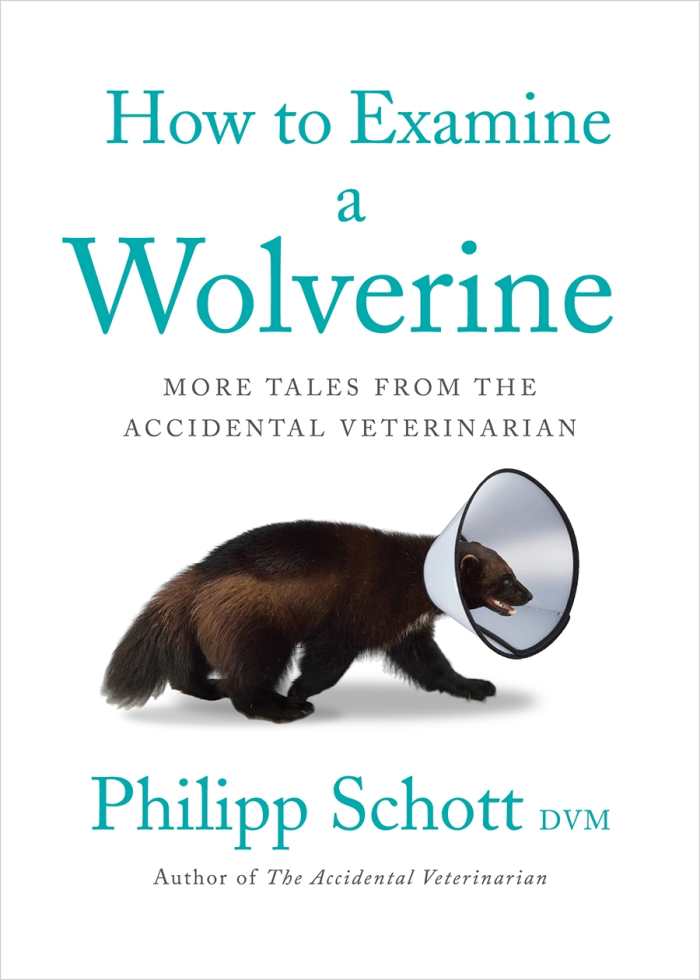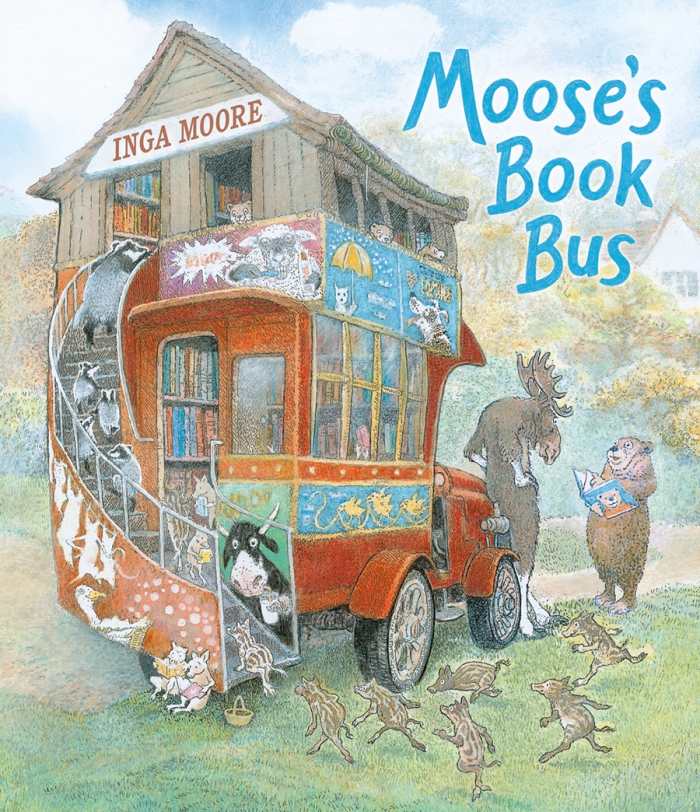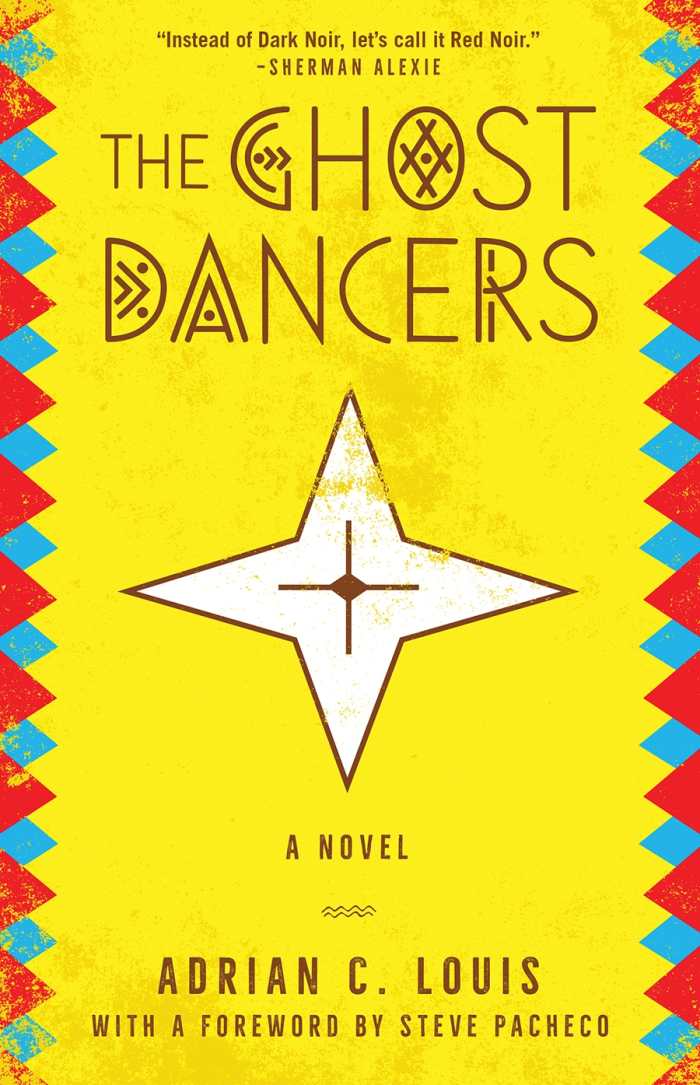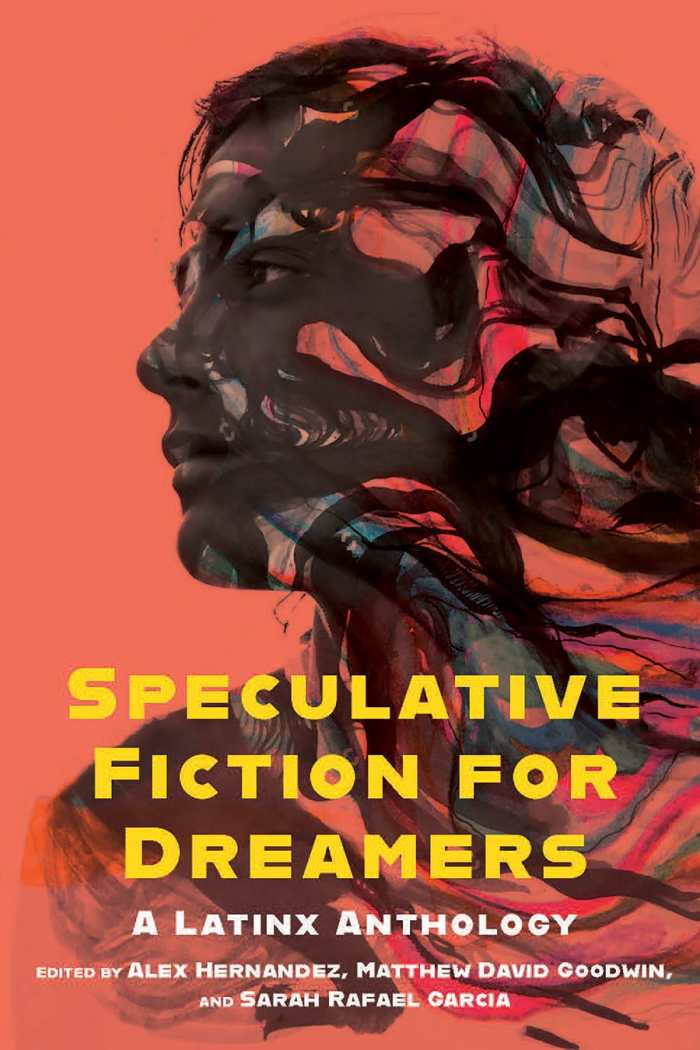Book of the Day Roundup: September 13-16, 2021
How to Examine a Wolverine
More Tales from the Accidental Veterinarian

Philipp Schott
ECW Press
Softcover $15.95 (290pp)
978-1-77041-588-1
Buy: Local Bookstore (Bookshop)
The deep, heartfelt essays of veterinarian Philipp Schott’s How to Examine a Wolverine read like rewarding animal memes. Drawing on years of experience, Schott’s bite-sized, real-life stories are organized by animal type, from everyday to exotic, though they showcase love for all kinds of animals (including humans). Together, they are an engaging study of the behaviors of pets and the people who care for them.
Fun facts, as about the proper ways to care for and feed African lion cubs, couple with sage advice, such as to make sure your dog never swallows chicken bones. But the book is far more than its interesting tidbits; it contains many stories of animals, from heartwarming to harrowing, featuring the enduring, sometimes irrational, love of humans and the wide problem solving of the doctors who care for them. It includes furry characters like a cat with herpes (no, not that kind!) and Benji the lion cub. Schott’s tone is warm, friendly, and folksy in his storytelling and his conversations with pet owners; even in the most stressful times, he’s a compassionate and level-headed guide.
How to Examine a Wolverine is an essay collection that celebrates the love of animals.
MELISSA WUSKE (August 27, 2021)
Moose’s Book Bus

Inga Moore
Candlewick
Hardcover $17.99 (48pp)
978-1-5362-1767-4
Buy: Local Bookstore (Bookshop)
Moose lives in the woods. He’s fortunate to be able to travel into town when he wants a new book; not all of the creatures around him are so lucky. Moose hosts story time, but his home gets crowded, so he conceives of a solution to bring books to all of the neighborhood creatures. Soft, speckled illustrations whose hazy edges invite daydreaming capture the rolling rural settings and the bustle of the town in this warm story about how books help to build communities.
MICHELLE ANNE SCHINGLER (August 27, 2021)
The Ghost Dancers

Adrian C. Louis
University of Nevada Press
Softcover $28.00 (264pp)
978-1-64779-024-0
Buy: Local Bookstore (Bookshop)
Written thirty years ago and now published posthumously, Adrian C. Louis’s novel The Ghost Dancers is about the violence that enables a father-son reunion.
The Wilson family descends from a powerful medicine man, but the glory of the past evades them. Quanah, after attacking his mother’s lover, decides to clear his head by staying with his father, Bean. Bean is a member of the Ghost Dance Society, a secret organization that metes out vengeance against anyone whom they feel has escaped just punishment. Both men have plenty of reasons to be angry, whether they’re real and imagined. One more tragedy could send them spiraling.
The men are as hardened and unsavory as the world they inhabit. They are both victims of and perpetrators of racial discrimination. They struggle with anger, insecurity, and depression brought on by persistent poverty, alcoholism, emasculation, and domestic abuse. Broken homes are ubiquitous, even expected. The only form of power available to Quanah and Bean is of the violent, nihilistic kind.
But Quanah and Bean find that power does not bring stability or happiness. As Quanah comes to realize that his father’s world is not the haven he expected, Bean struggles to escape his dark, destructive vices. While the book’s premature ending leaves a large gap between its events and the prologue explanation of Bean’s fate, resulting in unanswered questions, it does make its perspective clear: that the US has no interest in what the Wilsons have to offer, and that the country will never offer its Native populations anything worth having.
The Ghost Dancers is a grim, uncompromising novel in which a Native American family deals with the crushing effects of generations of colonialism.
EILEEN GONZALEZ (August 27, 2021)
Speculative Fiction for Dreamers
A Latinx Anthology

Alex Hernandez, editor
Sarah Rafael García, editor
Matthew David Goodwin, editor
Mad Creek Books
Softcover $24.95 (400pp)
978-0-8142-5798-2
Buy: Local Bookstore (Bookshop)
Edited by Alex Hernandez, Sarah Rafael García, and Matthew David Goodwin, the anthology Speculative Fiction for Dreamers is an exciting and mind-expanding collection of short stories by contemporary Latinx authors.
Speculative Fiction for Dreamers uses as its inspiration the lived experiences of the American Latinx community of today, expressed through speculative fiction. Rooted in the theoretical framework established by Gloria Anzaldúa’s ideas about la frontera, the anthology’s stories grew out of the participating authors’ lives, located at the cultural, political, sexual, and ethnic borderlands of American society.
Here, climate change is an ongoing apocalypse; government surveillance is part of everyday life; the fight for the integrity of one’s identity is constant; and the supernatural lurks behind the veil of reality. In Tabitha Sin’s “Homebound,” a woman is forced to participate in the American government’s eugenics program to pay off her debts; in Louangie Bou-Montes “Like Flowers Through Concrete,” an illegal garden is grown in a city destroyed by pollution, and it becomes the reason for a new friendship.
Expertly curated, the anthology is divided into five parts. The title of each part alludes to the Dreamer generation in an imaginative way while also demonstrating the anthology’s thematic arc, which goes from dreams of home to dreams never imagined by way of dreams interrupted or deferred. The stories take place in alternate Latinx-centric worlds and futures. They are fun, irreverent, and subversive, saturated by self-confidence and spirit. The illustrious contributors represent multiple identities from North, Central, and South America, and the preface by Frederick Luis Aldama puts the anthology into its cultural and literary contexts.
Speculative Fiction for Dreamers is a fun, subversive anthology of Latinx short stories.
ERIKA HARLITZ KERN (August 27, 2021)
A Thousand Trails Home
Living with Caribou

Seth Kantner
Mountaineers Books
Hardcover $28.95 (320pp)
978-1-59485-970-0
Buy: Local Bookstore (Bookshop)
A Thousand Trails Home mixes lush nature writing, evocations of a lifetime of hunting and living off of the land, and a portrait of Alaska’s unique culture and history. At the center of it all are caribou, the life-sustaining herds that mark the land in both literal and metaphorical ways with the tracery of their ancient trails.
Seth Kantner has seen huge changes in climate and technology during his lifetime; he switches from the past to the present well, developing portraits of his human and animal neighbors. Sharp, fond essays and landscape photographs move from his childhood in a sod igloo into present-day battles over wildlife management, Indigenous rights, and resource extraction. Cozy reminiscences contrast with descriptions of “Rambo hunting,” as snowmobiles and semi-automatic weapons replace dog sleds and .22 rifles. Kantner worries about the future of the caribou populations, though he also shares his disgust with wildlife biologists and federal land managers that treat animals in insensitive ways.
The seasonal chapters flow from the harvest’s hunting and rutting into intense “cold that pinches like pliers,” lush vernal growth, and the counterintuitively harshest season: summer, with its relentless sun and mosquitoes. This is not a book for the squeamish: its lyrical descriptions of natural beauty are punctuated by scenes of field-butchering, orphaned calves, and nauseating insect larva plaguing caribou innards. Alaska and its caribou are shown to be threatened by accelerated warming, as plants and wildlife become more out of sync with various environmental cycles. The caribou’s predictable migration is in upheaval, and Kantner mourns the “feeling of safety and providence,” as well as the traditional relationship to the land that caribou represent.
A Thousand Trails Home is a labor of love that advocates for more balanced ways of treating caribou and protecting the amazing Alaskan wilderness.
RACHEL JAGARESKI (August 27, 2021)
Barbara Hodge
